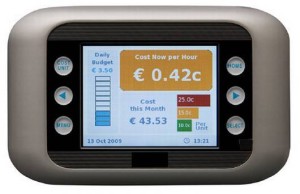
By Ann Marie Foley - 11 February, 2016

The Society of St Vincent de Paul (SVP) spent almost €9 million in 2014 on the fuel and energy costs of the families it assisted all over Ireland.
In its recent submission to the Commission for Energy Regulation (CER) on the approaching smart metering programme, the charity stated that this sum of €9 million was a “very substantial share” of the over €40 million of assistance that it provided that year, however this is changing.
“The overall amount of energy-related assistance is decreasing from a high in 2012 and this is in part due to greater use of Pay As You Go/Pre-Payment meters among people we visit and assist, giving them greater control over their energy use and day to day budgeting,” stated the SVP.
In its submission, the SVP raised concerns that vulnerable people will be unable to avail of many benefits for example ‘paperless’ billing and direct debit discounts or ability to switch between suppliers to get a better price.
CER describes smart meters as the next generation of energy meter. They will replace traditional electricity and gas meters removing the need for a home visit to read the meter.
They provide actual consumption information enabling consumers to reduce their electricity bill by shifting some of their electricity usage away from (more expensive) peak consumption times.
CER states that informing consumers of their actual usage in electricity and gas will allow them to avoid unnecessary consumption and cost.
However, in its submission to the CER consultation on the National Smart Metering Programme (NSMP), the SVP cautioned that it requires:
– That customers are be able to act on information about their energy use;
– Policies and procedures that place customers, particularly people with lower levels of literacy, or less income or access to financial products or online services, at the centre of any policy developments in relation to smart metering;
– Acknowledgement of the limits facing financially constrained customers who may not have the capability to avoid the less desirable consequences of Time of Use (ToU) tariffs posed by the roll-out of smart metering over the next couple of years.

SVP welcomed the provision of easy to access “at a glance” information that will be accessible by everyone rather than just by IT (information technology) literate and better off customers.
However, it cautioned vulnerable customers may not be able to benefit from improvements. For example, currently customers who find it difficult to keep up with payments cannot qualify for discounts associated with paperless billing and direct debit, or with changing suppliers.
Some pilot studies suggested the average savings would be 2.5% or around €50 per year per home in Ireland.
However, The Times reported in 2014 that a cost-benefit analysis indicated households would save €16.20 a year on electricity and €18.52 on gas.
Smart metering is an EU-wide project aimed at reducing usage and ultimately helping the environment through reducing overall energy production.
In the UK, like Ireland, meters are being installed by 2020. Which?, the consumer publication, states that some people have concerns about:
• Estimated cost of installing meters is £11bn, this will ultimately be passed on to customers
• Security and privacy – who can see consumption data and what can they do with it?
• Health Concerns about radio frequencies and electrico-magnetic radiations produced
Other action groups against the metering have claimed that energy companies will use the information they gather on consumption for their own benefit and will not pass on any savings to consumers.
For the SVP submission see: http://www.svp.ie/NSMPEaPCustomers16